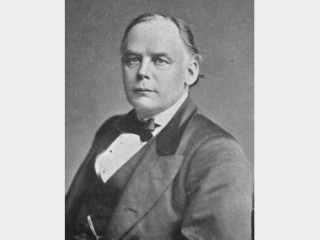
Charles Bradlaugh biography
Date of birth : 1833-09-26
Date of death : 1981-01-30
Birthplace : London, England
Nationality : British
Category : Famous Figures
Last modified : 2011-02-08
Credited as : political activist, freethinker,
The English freethinker and political agitator Charles Bradlaugh successfully struggled to secure the right of nonbelievers to take seats in the House of Commons.
The son of a poor clerk, Charles Bradlaugh was born in London on Sept. 26, 1833. At 15 he abandoned Christianity for atheism. From 1850 to 1853 he was a private in the army in Ireland. Through these years he taught himself languages and law. By the end of the 1850s he had become the most powerful British propagandist for atheism, and in his public lectures he faced with courage and skill hostility and even physical abuse.
Bradlaugh became president of the London Secular Society in 1858. In 1860 he founded the periodical National Reformer, which continued as his vehicle until his death. In 1866 he organized the National Secular Society, which became the largest of such organizations in Britain. Through the 1860s he developed a large and devoted following among London workingmen. He was an early supporter of woman's suffrage, birth control, and republicanism. In 1874 Bradlaugh was joined by Mrs. Annie Besant, who became a vice president of the Secular Society.
Bradlaugh sought election to the House of Commons from Northampton; twice unsuccessful, he finally won in 1880. There then ensued a long controversy over his right to be seated. This dispute centered on the oath of office invoking God that all members were required to take. Bradlaugh offered to take this oath or to substitute an affirmation of allegiance for it. But the House refused him either option.
Over the next five years Bradlaugh was reelected four times but was not allowed to take his seat. Eight separate legal actions proceeded from the controversy. The constitutional issues raised were finally resolved by passage of Bradlaugh's Affirmation Bill in 1888. The House removed the records of his expulsions from its journals just before Bradlaugh's death on Jan. 30, 1891.
Bradlaugh was in no sense a true radical. His atheism and his political convictions were based on 18th-century individualism. He was suspicious of socialism and of government intervention even in hours of work. But he was a dedicated and honorable figure. G. J. Holyoake, his rival for Secularist leadership, called him "the greatest agitator, within the limits of the law, who appeared in my time among the working people."
















